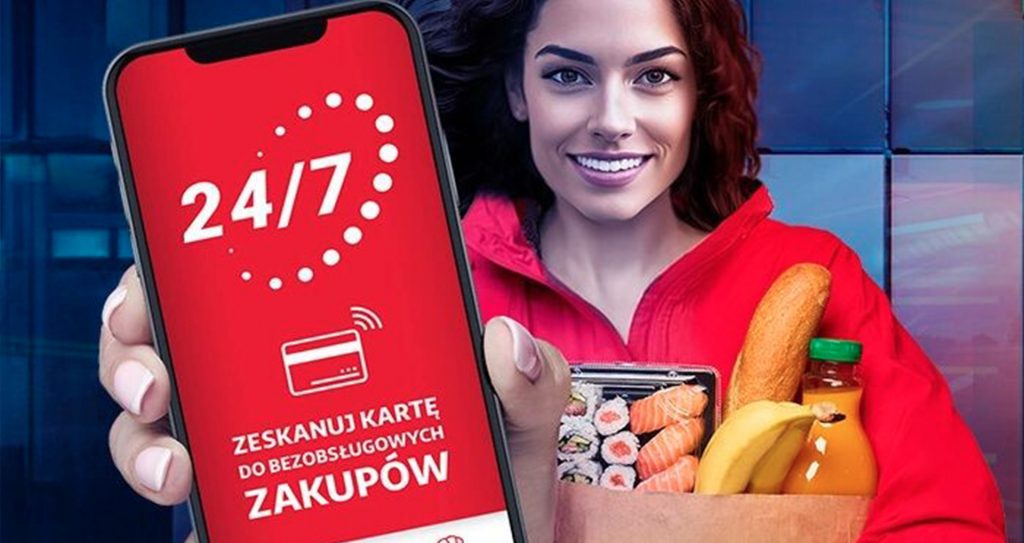Glossary: What are the types of autonomous stores?
Autonomous stores can be broken down into four major types: retrofit, new build-outs, micro-stores, and a store within a store. Each of these types provides unique value to retailers and, together, they are driving the expansion of autonomous stores around the world.
Retrofitted autonomous stores
Retrofit is the term for transforming traditional stores with cashiers into autonomous ones at the same location, without changing the layout, furniture, product offerings, or general appearance of the store – besides the hardware installed to enable the frictionless checkout experience for shoppers.
What is the key value of retrofitted autonomous stores?
Stores retrofitted with Trigo’s store automation system are relatively low risk for retailers – they can be transformed in days with zero downtime to business, there are existing store operations and supply chain logistics in place, and the tech can be implemented at multiple supermarket tiers.
Retrofit stores also have the major benefit of a high scalability potential. Retailers only open dozens to low hundreds of stores per year, and since retrofitting requires minimally invasive renovations to existing stores, there is a higher starting potential of hundreds to thousands of stores already up and running in retailers’ portfolios. So for retailers with ambitious expansion goals for autonomous stores, retrofit is the best route to scale both quickly and extensively.
Checkout free new build-out stores
New build-outs are stores built in a brand new retail space or in an existing retail space that was gutted completely and rebuilt from scratch.
What is the main upside of newly built smart stores?
New build-out stores can be completely customized to the frictionless checkout experience. They also tend to have fewer technological barriers than some other store types because the store is built to fit the tech, rather than the other way around. This also means retailers have the flexibility to choose an entirely new location that would be ideal for a frictionless checkout store, such as one with significant traffic – e.g. a high street in an urban environment – or in a young neighborhood, where the residents are typically tech-savvy and early adopters of new technology and innovation.
Cashierless micro-stores
Micro-stores are the smallest type of autonomous stores implemented by grocery retailers around the globe. They are usually very small stores that open in kiosk-like or portable retail spaces, depending on the vendor and place. Their small size and limited product assortment make it easier to open and manage frictionless checkout micro-stores, especially in places such as corporate headquarters, college campuses, and transportation hubs (e.g. train stations or airports).
Since micro-stores are so small, maintaining a fulfillment center nearby is costly. Therefore, they generally contain mostly non-perishable or pre-packaged food items to simplify supply chain logistics. This opens up another market of potential customers for this type of smart store – non-grocery retail food vendors. Without the need for a large fulfillment center, food vendors can open autonomous stores in non-traditional locations, such as concerts, sporting events, and music festivals, where cashierless checkout is particularly advantageous.
What is the advantage of a cashierless micro-store?
Micro-stores can be a great launching point for retailers or food vendors venturing into the autonomous store space. It lets them try out frictionless checkout technology on a smaller scale, with reduced technological barriers due to their small size and limited product range, and add a new type of store offering to their portfolio.
Frictionless checkout stores within a store
A store within a store is when retailers either section off or build an additional space connected to a supermarket or hypermarket, creating a smaller store where autonomous store technology is implemented. This store typically offers basic essentials like milk, sugar, or flour, ‘grab and go’ items like pre-packaged sandwiches, and prepared foods like sushi. This store type is low-risk operationally, as the store is connected to a larger supermarket or hypermarket and already has a fulfillment center and robust supply chain infrastructure in place.
What is the benefit of a checkout-free store within a store?
A store within a store is also a good entry point into autonomous stores by providing the right environment for retailers to measure customer interest and their response to the new technology. Similar to micro-stores, a store within a store provides value to retailers who want to provide additional offerings to customers, from a size and convenience standpoint. A store within a store allows shoppers looking only for on-the-go items to stop by their favorite grocery store and enjoy a fast and frictionless experience for these types of small shopping trips. With this improved seamless shopping experience, retailers can then attract and benefit from customers of all basket sizes, increasing the value they provide to customers as well as the loyalty that comes with it.











